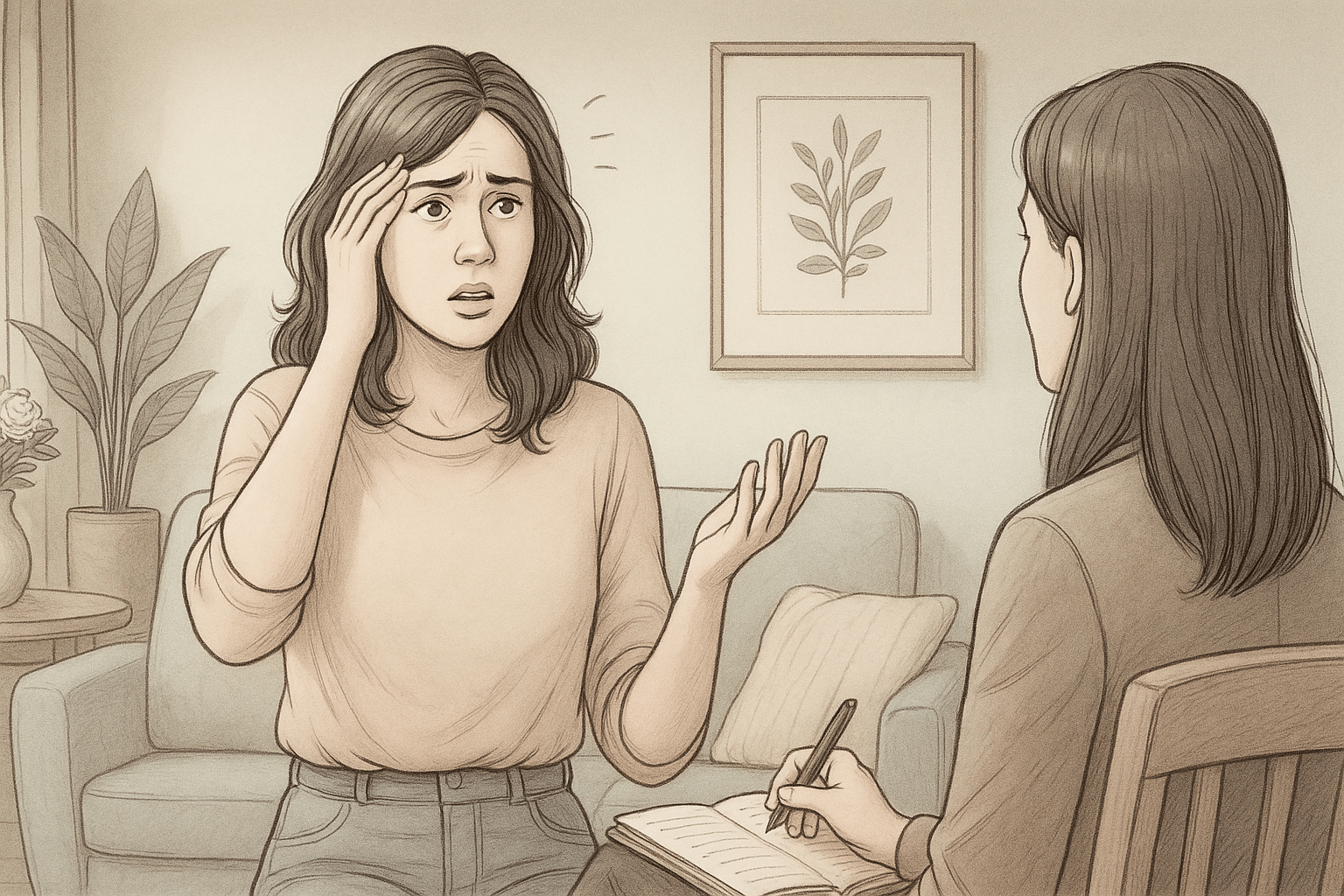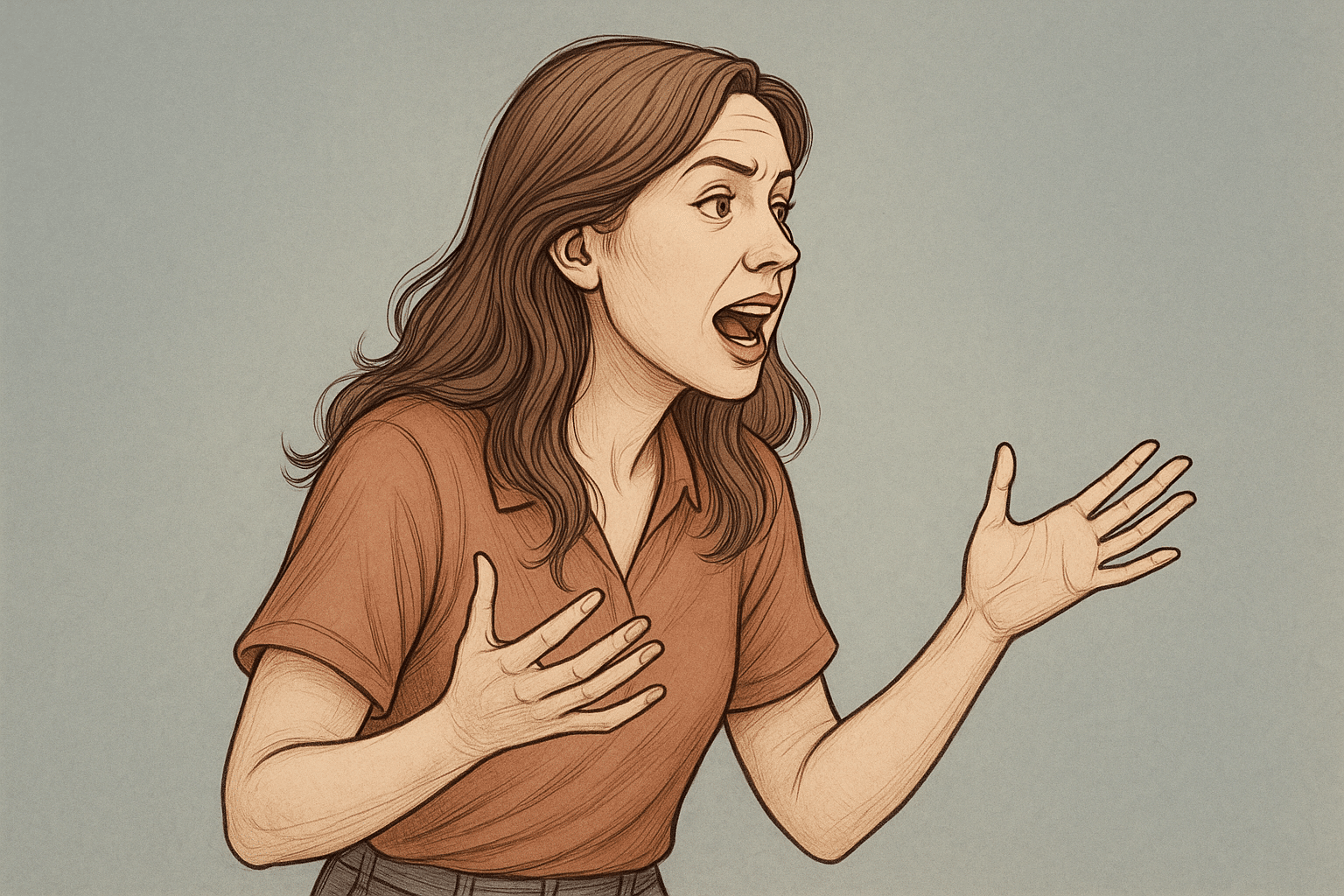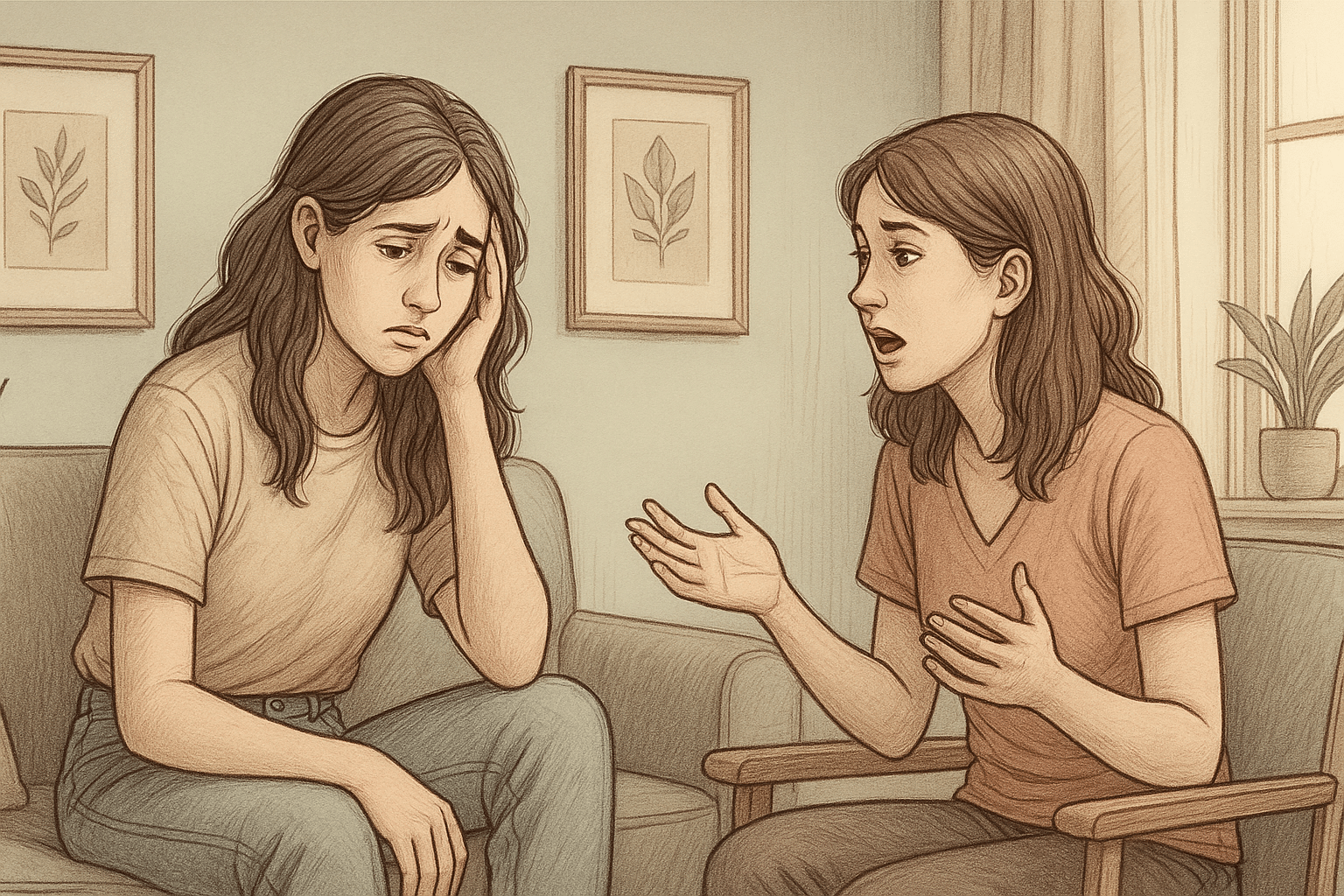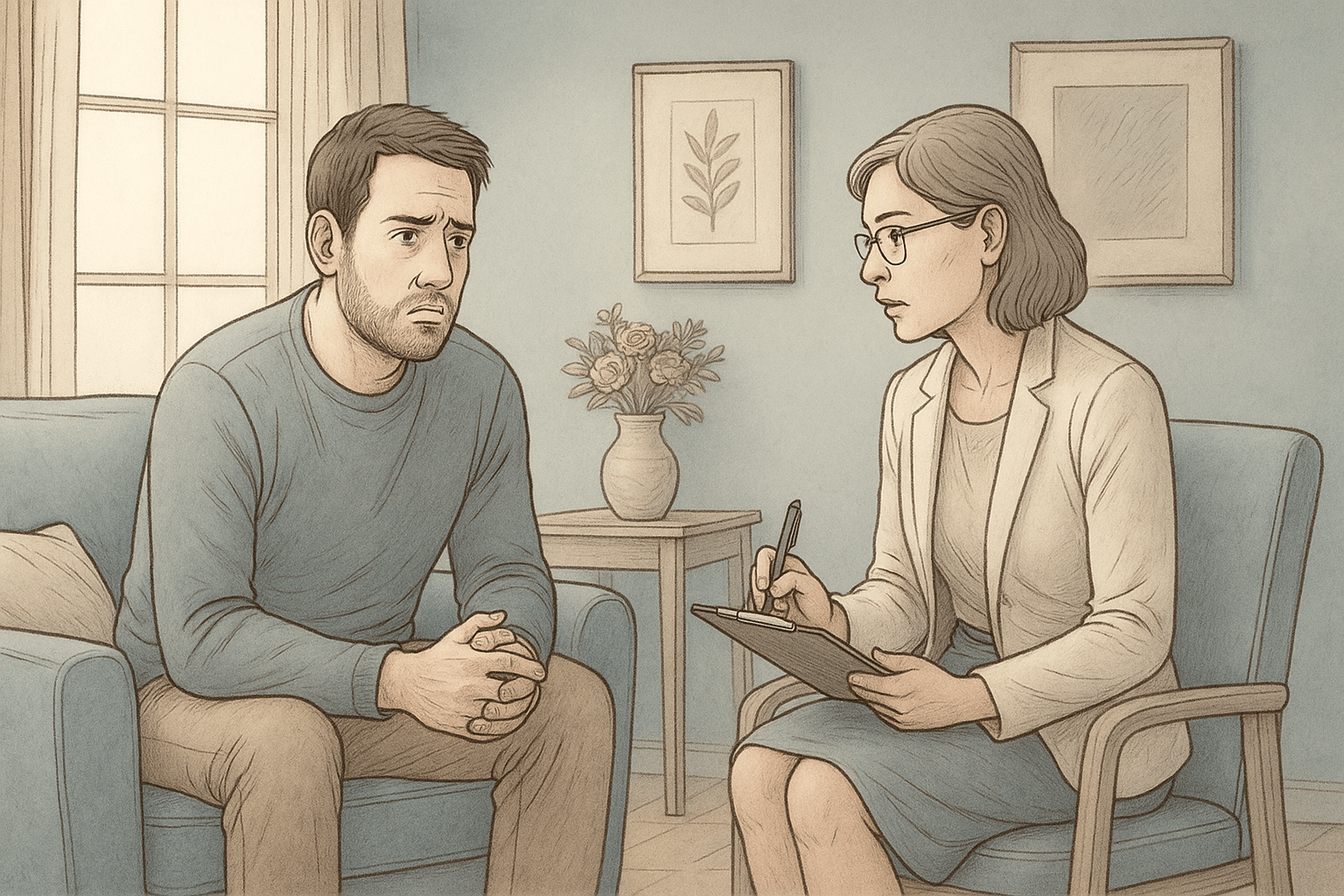
Key Takeaways
- Disorganized thought processes involve difficulty maintaining coherent, logical thinking patterns and are often symptoms of serious mental health conditions.
- Common examples include tangential speech, word salad, flight of ideas, thought blocking, and circumstantial thinking.
- Disorders like schizophrenia and bipolar disorder are primary causes, but brain injuries can also trigger these symptoms.
- With proper treatment, including medication, therapy, and supportive strategies, many individuals can experience significant improvement in thought organization.
- At Mission Connection, we provide comprehensive evaluation and treatment options to address the underlying causes of disorganized thinking.
What Is Disorganized Thinking?
Disorganized thinking is a cognitive pattern where thoughts become fragmented, illogical, or difficult to follow. Unlike occasional mental fog or distraction, a truly disorganized thought process represents a fundamental disruption in how the brain organizes and expresses ideas.
This condition is characterized by an inability to maintain a coherent train of thought, often making communication extremely challenging. At its core, disorganized thinking reflects a breakdown in the brain’s executive functioning, the mental processes that help us plan, focus attention, remember instructions, and juggle multiple tasks successfully.
When these processes falter, thoughts may jump randomly between unrelated topics, important details might get lost, and the person may struggle to reach logical conclusions or follow conversations. Recognize disorganized thinking as not just a standalone issue but often a symptom of serious underlying conditions that require proper assessment and treatment.
Mission Connection offers flexible outpatient care for adults needing more than weekly therapy. Our in-person and telehealth programs include individual, group, and experiential therapy, along with psychiatric care and medication management.
We treat anxiety, depression, trauma, and bipolar disorder using evidence-based approaches like CBT, DBT, mindfulness, and trauma-focused therapies. Designed to fit into daily life, our services provide consistent support without requiring residential care.
Recognizing Disorganized Thought Patterns

Tangential Speech
Tangential speech occurs when a person begins discussing one topic but gradually veers off in another direction, never returning to the original point. Unlike normal conversational shifts, these tangents often lack clear connections to the initial subject.
For example, someone might begin answering a question about their weekend plans but end up discussing childhood memories without ever addressing the original question. This pattern demonstrates how thoughts can become derailed, making meaningful communication challenging.
Word Salad
Word salad represents one of the most severe forms of disorganized thinking, where speech becomes a jumbled collection of words with little or no meaningful connection. The words themselves may be real, but they’re arranged in ways that defy grammatical rules and logical sense.
Someone experiencing this might say something like, “Blue carpet running sandwich behind clock yesterday.” This pattern often indicates significant thought disruption and may be particularly frightening for both the individual experiencing it and those around them.
Flight of Ideas
Flight of ideas involves an accelerated thought pattern where a person rapidly jumps between different and often unrelated topics. This differs from tangential speech in its speed and intensity.
Someone experiencing a flight of ideas might start talking about the weather, quickly shift to discussing a TV show, then jump to food preferences, all within a single breath. These rapid transitions happen because the mind is racing too quickly to maintain focus on any single subject.
Thought Blocking
Thought blocking manifests as sudden interruptions in speech and thinking, where a person abruptly stops mid-sentence as if their thoughts have been completely erased. Unlike ordinary momentary forgetfulness, the person often cannot recall what they were saying or thinking just seconds before.
This jarring experience can be particularly distressing, creating a sense of disconnect from one’s own mind.
Real-Life Examples
Conversation Struggles
In conversation, disorganized thinking often creates confusing and frustrating exchanges. A person might begin answering a simple question about their day but then shift into talking about a childhood memory, a news story they heard, and then concerns about their car, all without clear transitions or returning to the original topic.
These communication barriers can lead to social isolation as both the individual and others begin avoiding potentially difficult interactions.
Daily Task Confusion
Everyday activities that require sequential steps often become challenging for those with disorganized thinking. An individual might begin making breakfast but become distracted midway, leaving eggs cooking while starting to organize mail, then moving to watering plants, all while forgetting the original task.
This pattern can result in incomplete tasks, safety concerns, and increasing frustration.
Writing Difficulties
Essays, emails, or even social media posts may jump between unrelated topics without transition, include bizarre word choices, or contain sentences that start with one subject and end with completely different ideas.
These writing samples can be valuable diagnostic tools when assessing thought disorders.
Common Causes
Disorganized thinking rarely exists in isolation; it typically signals an underlying mental health condition or physiological issue affecting brain function. Identifying these root causes is essential for developing effective treatment plans that address both the disorganized thinking and its underlying triggers.
Schizophrenia
Schizophrenia is the most common and significant cause of persistent disorganized thinking. This serious mental health condition affects approximately 1% of the population and typically emerges in early adulthood.
In schizophrenia, disorganized thinking stems from fundamental disruptions in brain function and neurotransmitter activity. Individuals with schizophrenia often experience disorganized thoughts alongside other symptoms like delusions, hallucinations, and negative symptoms such as reduced emotional expression.
The thought disorganization in schizophrenia tends to be more severe and persistent than in other conditions, often significantly impacting a person’s ability to maintain employment, relationships, and independent living.
Bipolar Disorder
During manic episodes, people with bipolar disorder frequently experience racing thoughts that can manifest as disorganized thinking patterns, particularly flight of ideas. This rapid thought acceleration makes it difficult for the mind to complete one thought before jumping to another, creating disconnected speech and writing.
Unlike schizophrenia, the disorganized thinking in bipolar disorder typically emerges during mood episodes and may significantly improve during periods of mood stability.
Additionally, awareness of the disorganization is often higher in people with bipolar disorder, who may recognize their thinking becomes chaotic during mood episodes.
Severe Depression

The cognitive impairments associated with major depression can significantly slow thought processes, making it difficult to maintain a logical train of thought or recall information needed for coherent communication.
Individuals might struggle to complete sentences, lose track of conversations, or provide excessive, unnecessary details while trying to express simple ideas. These cognitive symptoms often improve as the depression is treated, though they may persist longer than mood symptoms in some cases.
Brain Injuries
Traumatic brain injuries, strokes, tumors, and other neurological conditions can directly damage brain regions responsible for organizing and sequencing thoughts. The resulting disorganized thinking often has a distinct pattern tied to the specific brain regions affected.
For instance, frontal lobe injuries typically produce more severe disorganization in speech production and thought sequencing. Unlike psychiatric causes, thought disorganization from brain injuries may show less fluctuation over time and might be accompanied by other neurological symptoms like memory problems, motor difficulties, or sensory changes.
Treatment Options for Disorganized Thoughts
Medication Approaches
Pharmacological interventions often form the foundation of treatment for severe disorganized thinking, particularly when caused by conditions like schizophrenia or bipolar disorder.
Antipsychotic medications help regulate neurotransmitters like dopamine and serotonin, which can significantly improve thought organization and clarity. For bipolar-related thought disorders, mood stabilizers and atypical antipsychotics help control the manic episodes that often trigger disorganized thinking.
Therapy Techniques

Cognitive Behavioral Therapy (CBT) helps you identify and challenge disordered thought patterns while also building skills for reality testing and organizing ideas.
Family therapy also plays an important role, helping loved ones understand disorganized thinking and learn effective communication strategies. These sessions allow families to practice supportive responses and develop household routines that provide the structure and predictability that often help reduce thought disorganization.
Social Skills Training
Social skills training directly addresses the communication difficulties that often accompany disorganized thinking. Through structured practice sessions, you learn strategies for maintaining conversational focus, recognizing social cues, and expressing yourself more clearly.
These interventions often include role-playing exercises that simulate real-world interactions, providing opportunities to practice skills like staying on topic, appropriate turn-taking in conversations, and clarifying misunderstandings.
The goal is to help you manage social situations more successfully despite ongoing cognitive challenges.
Comprehensive Care for Disorganized Thinking at Mission Connection
At Mission Connection, we recognize that disorganized thinking often signals underlying conditions requiring specialized expertise and compassionate care.
Our multidisciplinary team combines deep clinical knowledge with genuine understanding of how thought disorders impact every aspect of daily life, from maintaining relationships to completing simple tasks. We don’t just treat symptoms; we address the complex interplay of biological, psychological, and social factors contributing to cognitive disruption.
Our comprehensive treatment approach integrates medication management, cognitive remediation, specialized therapy techniques, and family support—available both in-person and through telehealth—to restore thought clarity and improve functioning.

If you’re experiencing early signs of thought disorganization or managing established patterns, our experienced clinicians develop personalized treatment plans that honor your unique needs and goals.
Recovery from disorganized thinking is possible, and you don’t have to manage this challenging journey alone. Contact Mission Connection today to begin reclaiming cognitive clarity and rebuilding the meaningful life you deserve.
Call Today 866-833-1822.
Frequently Asked Questions (FAQ)
Is disorganized thinking always a sign of mental illness?
Disorganized thinking isn’t always indicative of a mental illness, though persistent patterns typically warrant professional evaluation. Temporary thought disorganization can occur during periods of extreme stress, sleep deprivation, or physical illness.
Can stress cause temporary thought disorganization?
Yes, severe stress can temporarily disrupt thought organization in otherwise healthy individuals. When the brain’s stress response systems become overwhelmed, cognitive functions, including attention, working memory, and logical reasoning, may temporarily deteriorate. This stress-induced cognitive disruption typically resolves as stress levels decrease.
How can I tell if my disorganized thoughts need medical attention?
Seek help if your thought patterns significantly interfere with daily functioning, relationships, or work performance. If others frequently comment that your speech is difficult to follow or doesn’t make sense, this may indicate a problem requiring assessment.
Similarly, if disorganized thinking emerges suddenly or worsens notably over a short period, professional evaluation is important.
Are children with ADHD experiencing disorganized thinking?
While ADHD can cause disorganized-appearing behavior and communication, it differs fundamentally from the thought disorders discussed in this article. Children with ADHD typically maintain logical thought connections but struggle with attention regulation, impulse control, and organizing their actions.
Their speech may jump between topics due to attention shifts rather than true thought disorganization, and they generally maintain awareness of these shifts.
How does Mission Connection approach treatment for disorganized thinking?
Mission Connection provides comprehensive, individualized treatment that addresses both the symptoms and underlying causes of disorganized thinking.
Our multi-modal approach combines medication management by experienced psychiatrists, evidence-based therapies including CBT and cognitive remediation, family therapy and education, and social skills training to address the symptoms of disorganized thinking and its underlying cause.


